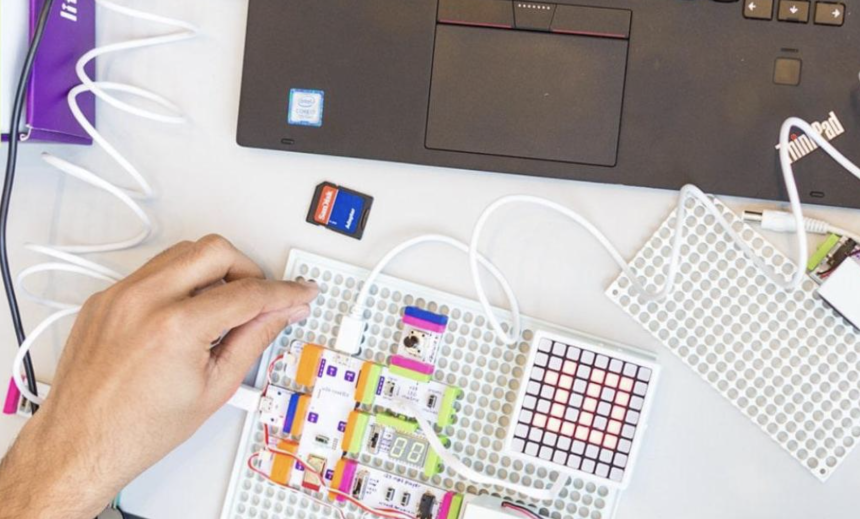Experiential learning, an educational approach that emphasizes hands-on experience, is gaining prominence in various fields. As the landscape of education changes, an increasing number of online homeschool programs are adopting this methodology to offer the best homeschool curriculum to their students. This blog post delves into the concept of experiential learning and its significance in shaping successful careers and personal growth.
Understanding Experiential Learning
At its core, experiential learning is an educational approach that involves learning through direct experience and reflection. This process consists of four stages: concrete experience, reflective observation, abstract conceptualization, and active experimentation. As learners cycle through these stages, they acquire knowledge and skills that can be applied to real-life situations, making the learning process more meaningful and engaging.
Traditional Learning Vs Experiential Learning
Traditional education has always placed a significant emphasis on imparting theoretical knowledge to students. However, in recent times, there has been a growing recognition of the value of experiential learning. This approach focuses on giving students practical, hands-on experience in real-world situations.
With the rapid advancements in technology and the changing landscape of education, online homeschools and educational institutions are adapting to this new way of learning. They are increasingly incorporating this into their curriculums, providing students with an opportunity to apply the knowledge they have acquired in a meaningful and relevant context. It’s not only engaging but also helps students develop essential skills such as critical thinking, problem-solving, and communication.
By fostering a deeper understanding of the subject matter, this types of learning provides students with a well-rounded education that prepares them for success in the real world.
The Growing Recognition of Practical Experience in Education
Educators and institutions alike are acknowledging the importance of real-world application and problem-solving in today’s dynamic world. This shift in educational values has resulted in a growing emphasis on practical experience, with more online homeschool programs incorporating hands-on learning opportunities into their offerings.
Employers are increasingly seeking candidates with practical experience, placing a premium on skills and adaptability in the job market. As a result, experiential learning has become a highly sought-after component of the best homeschool curriculums and other educational programs.
Benefits of Combining Theoretical Knowledge with Real-World Application
Enhanced Problem-solving Skills
Integrating hands-on experience into the learning process allows students to tackle challenges more effectively. By applying theoretical concepts in real-world contexts, learners develop a deeper understanding of the subject matter and become better equipped to solve problems.
Fostered Adaptability
Experiential learning encourages learners to navigate change and adapt to new situations, a vital skill in today’s fast-paced workforce. As they gain experience in diverse environments, students develop a greater capacity for adapting to unexpected challenges and changes.
Building Confidence
Engaging in practical experiences empowers learners to build confidence in their abilities. This increase in self-assurance can have a profound impact on personal growth and career advancement, as individuals become more willing to take risks and step outside their comfort zones.
Additional Benefits of Experiential Learning
Other than the advantages mentioned above, the following are the additional key benefits of incorporating experiential learning into one’s education and career development:
- Gaining practical, real-world experience – Experiential learning opportunities allow learners to apply what they have learned in the classroom to real-world scenarios. This helps them to better understand how their education and skills can be applied in a professional setting.
- Building a network – Learners are given the opportunity to build relationships with professionals in their desired field. These connections can be valuable resources for future job opportunities or career advice.
- Improving employability – Employers often prefer candidates who have practical experience in their desired field. By participating in experiential learning opportunities, learners can demonstrate their skills and commitment to their chosen career path.
- Developing transferable skills – Experiential learning provides learners with the opportunity to develop a range of transferable skills, including communication, teamwork, problem-solving, and leadership. These skills are highly valued by employers and can be applied to a variety of career paths.
Integrating Experiential Learning into Your Educational and Professional Journey
Strategies for Incorporating Experiential Learning
Several avenues can be explored to incorporate experiential learning into one’s education and career development. Opportunities such as internships, co-ops, and job-shadowing provide learners with valuable hands-on experience in their desired fields. Service learning and community engagement initiatives enable students to apply their skills in real-life settings while contributing to their communities. This type of experiential learning not only provides learners with valuable experience, but also allows them to give back to their communities and make a positive impact.
Project-based learning and case studies offer opportunities for learners to tackle real-world problems in a structured environment. These types of experiential learning provide learners with the opportunity to apply their skills to real-world problems, develop critical thinking and problem-solving skills, and work in teams to find solutions.
Incorporating experiential learning into one’s education and career development provides numerous benefits, including gaining practical experience, building a network, improving employability, and developing transferable skills. Whether through internships, co-ops, job-shadowing, service learning, community engagement, project-based learning, or case studies, experiential learning is a valuable component of any education and career development plan.
Lifelong Learning and Professional Development
Experiential learning is a crucial aspect of career development. It helps individuals stay up-to-date and competitive in today’s rapidly changing workforce. By continuously acquiring new skills and knowledge, individuals are able to adapt to new challenges, technologies and industry trends. This not only enhances their job performance but also guarantees their long-term success in their chosen field.
Moreover, experiential learning enables individuals to broaden their perspectives, gain new insights, and explore new opportunities. It allows them to develop new skills, collaborate with others, and take on new challenges. Embracing a continuous learning mindset helps individuals to remain agile and versatile in their careers, ensuring they are always prepared for whatever the future may bring.
Experiential learning holds the key to unlocking success in both personal growth and career advancement. By incorporating hands-on experiences and practical application into one’s educational and professional journey, individuals can enhance their problem-solving skills, foster adaptability, and build confidence. As online homeschool programs and other educational institutions continue to recognize its value, students will be better equipped to thrive in today’s dynamic world. Embrace the power of experiential learning and take the first step towards unlocking your full potential.
Lynn Martelli is an editor at Readability. She received her MFA in Creative Writing from Antioch University and has worked as an editor for over 10 years. Lynn has edited a wide variety of books, including fiction, non-fiction, memoirs, and more. In her free time, Lynn enjoys reading, writing, and spending time with her family and friends.















